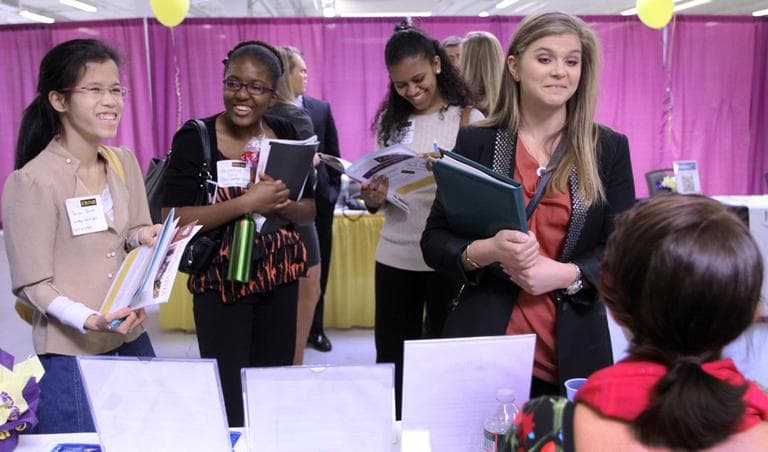Advertisement
Are We In The Midst Of A 'War Against Youth?'
Resume
What's the great divide in America? Republican/Democrat? Male/female? Black/white? Writer Stephen Marche says it's older versus younger Americans.
Marche argues in a provocative essay in the latest edition of Esquire magazine that the last 30 years of economic and social policy has been rigged to serve the comfort and largesse of the old at the expense of the young, and baby boomers are gutting the prospects of America's young people. He writes:
In 1984, American breadwinners who were sixty-five and over made ten times as much as those under thirty-five. The year Obama took office, older Americans made almost forty-seven times as much as the younger generation.
He contiues to say the "gerontocracy" begins at the top of the food chain, with Congress:
The gerontocracy begins at the top. The 111th Congress was the oldest since the end of the Second World War, and the average age of its members has been rising steadily since 1981. The graying of Congress has obvious political ramifications, although generalizations can be deceiving. The Republican representatives tend to be younger than the Democrats, but that doesn't mean they represent the interests of the young. The youngest senators are Tea Party members, Mike Lee from Utah and Marco Rubio from Florida (both forty). Here's Rubio: "Americans chose a free-enterprise system designed to provide a quality of opportunity, not compel a quality of results. And that is why this is the only place in the world where you can open up a business in the spare bedroom of your home." He is speaking to people who own homes that have empty spare bedrooms. He will not or cannot understand that the spare bedrooms of America are filling up with returning adult children, like the estimated 85 percent of college graduates who returned to their childhood beds in 2010, toting along $25,250 of debt.
Marche says that one example of the war is the ubiquity of unpaid internships, which save businesses around $2 billion a year.
"Disney has 7,000 interns. Does it really not have any money to pay young people to do the kind of starter jobs that people used to have all the time?" he said to Here & Now's Robin Young.
20,000 people on Facebook have "liked" the essay entitled "The War Against Youth," but at least one critic says the essay distracts young readers from the real threats to their economic security and it's fighting the wrong army.
***Update 5/3/2012 - After we aired this story, we heard from listeners who said Disney did pay their interns. We contacted Disney and a spokesperson told us they paid all of their interns anywhere from entry level to prevailing market wages depending on their level of experience and educational background.
- Esquire: The War Against Youth
- Campaign For America's Future: The Real War On Youth
Guest:
- Stephen Marche, columnist for Esquire magazine
This segment aired on May 2, 2012.